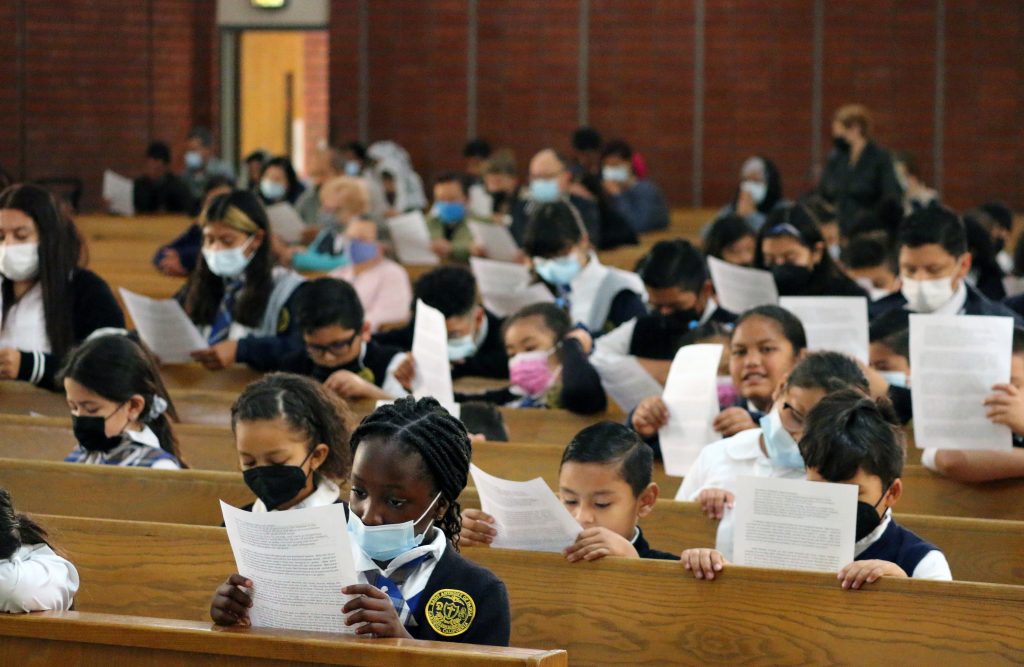Low-income students attending archdiocesan Catholic schools in neighborhoods such as Watts and East LA — who for several years have been deprived of federally funded academic support services that are mandated by Congress — will have to keep waiting.
On April 20, LA County Superior Court Judge Douglas Stern ruled that he could not consider the archdiocese’s lawsuit in this matter while the Los Angeles Unified School District (LAUSD) — which the archdiocese maintains has illegally withheld federal funds — appeals to the U.S. Department of Education. The archdiocese had argued that federal statutes required a ruling on that appeal within 90 days, a deadline that expired in August 2021.
Paul Escala, senior director and superintendent of schools for the Archdiocese of Los Angeles, called the decision “disappointing.”
“It was a rather baffling and inconsistent application of the statute” on disputes over the Title I distribution, Escala said. “It’s very frustrating because we are now experiencing a yearslong loss of services, and during a pandemic, mind you.”
Title I was created by Congress in 1965 to deliver academic support services to low-income students who struggle academically, whether they attend public, private, or religious schools. Public school districts are responsible for making an “equitable” distribution of the federal funds to private and religious schools in their territory. Beginning in 2018, the archdiocese maintains, LAUSD began arbitrarily changing how it assessed this distribution, slashing the number of eligible Catholic schools from more than 100 to 17. The Title I support for Catholic schools plummeted from about $9 million in 2017-2018 to $800,000 in 2020-2021.
In 2019 the archdiocese filed a complaint with the California Department of Education, which eventually ruled in June 2021 that LAUSD had violated the federal statutes in its assessment of need among students in Catholic schools. The LAUSD then appealed to the federal Department of Education, and Judge Stern ruled that he can’t consider the suit while that appeal is pending.
One element of determining eligibility for Title I services has been the proportion of low-income families in neighborhoods around each school. Yet Catholic schools that the LAUSD deemed ineligible for Title I included some in neighborhoods known nationwide for high poverty rates, such as East LA and Watts.
“LA Unified students who attend schools in these same neighborhoods — and who have family members who attend Catholic schools — receive Title I services. The same families qualify at the public school but not the Catholic school,” Escala said.
Title I does not supply a cash pipeline, but pays for services such as tutoring in basic subjects such as math and English. Most low-income students attending Catholic schools within the boundaries of LAUSD have now been without those services for several years.
“We have seen a precipitous decline in the number of eligible families qualifying every year for Title I services in our schools,” Escala said. “Those services continue to dwindle.”
In its suit, the archdiocese asked the court to compel LAUSD representatives to engage in “timely and meaningful consultation” to “properly calculate” the number of students eligible for Title I assistance. It also asked for unspecified financial damages and a ruling that LAUSD had violated the constitutional rights of the archdiocese and its students.
The archdiocese is pursuing three paths forward, including a possible return to court. The recent decision applies only while the LAUSD is pursuing its appeal.
“This is not closing the door and locking it shut,” Escala said of Stern’s opinion. “This was procedural. There was no hearing on the case itself, so we did not lose the case.”
The second possibility is that the U.S. Department of Education could order a resolution. A third is that the two sides could settle the case.
“We are cooperating with the U.S. Department of Education in any requests they make of us while they are investigating this matter, and we continue to extend our olive branch to LA Unified to settle this case. We believe that it can be settled,” Escala said.
He is confident in the ultimate outcome.
“We feel strongly that the facts are on our side. We continue to press forward to successfully resolve this matter in any way we can, on behalf of our most needy students,” he said.

